Scores of Palestinian Militants Still in Israeli-Controlled Parts of Gaza, Officials Say

© Bashar Taleb/Agence France-Presse — Getty Images

© Bashar Taleb/Agence France-Presse — Getty Images

© Derek Abella
In the lead-up to Tuesday’s gubernatorial election in New Jersey, some Democrats wondered if Mikie Sherrill could pull off the improbable: winning three consecutive terms for the party for the first time since 1961.
But Sherrill was confident she would emerge victorious.
Sherrill said Wednesday in an interview with POLITICO’s Dasha Burns on “The Conversation” podcast that she “never really felt too nervous about my ability to win this one.”
As early voting got underway, it became clear that it was “just a matter of how much we'd win by,” Sherrill said.
“The narrative was weird in the primary, and it was weird in the general, and I think some of that was because of how people felt from ’24, that there was still this kind of hangover from ’24 and how that race went,” she told POLITICO.
Still, the enthusiasm on the ground — especially at last month’s nationwide “No Kings” rallies — convinced Sherrill that voters would deliver for her.
Sherrill speculated that some observers underestimated her campaign because it didn’t follow the model of “the traditional Democratic campaign” in New Jersey, where the legacy of machine politics looms large.
"Because we built this a different way, I think it wasn't as clear to people how we were doing it and how we were getting our votes out,” she said. “And I think that probably made some people nervous, but I would say that we invested a lot of time, energy and resources in a statewide field program, the likes of which have never been seen.”
Sherrill also said that her military background conveyed her "decisive” leadership style to voters, who she said trust her to deliver on promises like bringing down energy costs.
While she said she hasn’t yet spoken to President Donald Trump, the governor-elect told POLITICO that she’s intent on “clawing back as many resources into the state of New Jersey as possible.”
“I'm really hoping we can convince the administration, ‘hey, if you want to have a comeback in this economy, this is where you start and this is how you do it,’” she said.
Despite striking a message comfortably to the right of New York City mayor-elect Zohran Mamdani, Sherrill said she and her Democratic peers who saw electoral success across the board Tuesday have one thing in common: “This desire to make change that things aren't working for people.”
Listen to POLITICO's full conversation with Sherill on Friday's episode of “The Conversation."
A version of this article first appeared in POLITICO Pro’s Morning Score. Want to receive the newsletter every weekday? Subscribe to POLITICO Pro. You’ll also receive daily policy news and other intelligence you need to act on the day’s biggest stories.


德国总理默茨(Friedrich Merz)与副总理兼财长克林拜尔(Lars Klingbeil)周四在一次汇聚国内生产商、各州政府和工会的峰会后,提出了一种新的欧洲爱国主义精神,旨在保护本土钢铁行业。
克林拜尔在与默茨一同出席的新闻发布会上表示:“如果我们大力投资国防工业,那么我们就可以······表明我们希望优先选择欧洲和本土产品”。克林拜尔续指,“多一些‘购买欧洲产品’的意识,多一些欧洲爱国主义精神——我认为这会有所帮助”。
萨尔茨吉特股份公司首席执行官兼德国钢铁工业协会主席格罗布勒(Gunnar Groebler)以及德国金属工业工会副主席克纳(Juergen Kerner)与两位领导人一起出席了新闻发布会。
默茨表示,将全力支持欧盟保护钢铁行业的计划,并指德法两国可能正在共同推动此事。上个月,欧盟委员会提议将免税钢铁进口配额削减近一半,同时将超出配额的关税提高一倍至50%。
默茨指出,“欧洲层面已经有一些提案,我们一致同意支持这些提案,我们甚至讨论过是否可以与法国加快整个进程”。
大多数德国政党此前都反对贸易保护主义,因为过去二十年来,德国出口导向型经济一直是全球低贸易壁垒的最大受益者之一。然而,如今德国制造商和监管机构越来越担心来自中国和其他地区的竞争以及美国关税带来的扭曲性影响。
默茨说道:“我将尽我所能支持这些提议,并希望能够出台相应的法规”。欧盟的策略与美国总统特朗普的策略相似,特朗普曾对来自中国的廉价金属加征50%的关税,而中国是全球一半以上的钢铁生产国。
据世界钢铁协会的数据,德国是欧洲最大的钢铁生产国,也是世界第七大钢铁生产国。钢铁在欧洲最大的经济体德国的许多行业中被广泛应用,从建筑到汽车和机械工程,钢铁都是德国出口的重要组成部分。但多年来,中国一直以极低的价格向市场大量投放钢铁,削弱德国生产商。
默茨表示,“我们正面临全球贸易政策变革带来的重大挑战,一方面是美国征收的关税,另一方面是贸易流向的转变——尤其是来自亚洲、特别是来自中国,其正以补贴钢铁的洪流之势充斥市场”。
默茨谈到:“因此,我们需要在这一领域采取有效的保护措施。我们已同意在布鲁塞尔就此进行游说”。
法新社报导指,德国钢铁行业也因俄罗斯2022年全面入侵乌克兰后能源成本上涨而遭受重创,目前价格仍远高于战前水平。近期德国钢铁产量持续低迷,较2022年水平低10%至15%。
周四的会谈汇聚了德国主要钢铁生产商及该行业为主要雇主的各州领导人。默茨称:“我们与钢铁行业共同担忧当前的经济形势。企业正面临威胁生存的危机,因此这场对话······刻不容缓”。

(德国之声中文网)周四(11月6日),法国负责数字平台的国务秘书以及财长致函欧盟委员会,敦促对电商Shein采取措施。此前,Shein在法国网站涉嫌销售儿童色情玩偶,引发公愤。
欧委会回应称,“非常严肃”地对待该平台销售非法产品的风险,不过目前尚未计划封锁该网站。此前,Shein涉嫌违反欧盟多项规定已经受到欧委会调查。
周三,来自中国的该电商巨头首家实体店在巴黎开业,因玩偶事件以及产品不符合环保标准引来抗议者。
尽管该实体店仍保持营业,但法国政府已暂停Shein网站销售,同时检查该平台是否符合法国法律。路透社报道称,Shein法国网站周四仍可访问,但仅显示自有品牌服装。
欧盟数字事务发言人雷格涅(Thomas Regnier)向媒体表示,目前没有封锁Shein网站的计划。他说,按欧盟《数字服务法》,这样的举措将是该平台所在成员国采取的“最后手段”。Shein在欧盟的总部位于爱尔兰。
雷格涅强调,《数字服务法》规定了“合乎比例”的原则,即采取程度适当的措施。但他补充说,欧委会正在与法国磋商,相关风险是否属于“系统性”的性质。“倘若如此,欧委会将毫不犹豫地采取行动。”
前欧盟专员、德国前州长厄廷格(Gunther Oettinger)如今担任Shein顾问。他表示,该公司应尽可能透明,必要时纠正路线。“我确定Shein认真对待此事。你可以看到他们已经将产品下架。”

不安全的玩具、有毒的首饰
德国零售业协会HDE也呼吁德国政府以及欧盟有关部门对Shein采取更强硬立场。“违法违规行为必须有后果”,该协会表示。
德国质检机构Stiftung Warentest上周表示,对Shein及其竞争对手Temu的162件产品的检测中,110件不符合欧盟标准,其中包括不安全的玩具以及首饰中含有毒金属。
(路透社、法新社)
DW中文有Instagram!欢迎搜寻dw.chinese,看更多深入浅出的图文与影音报道。
© 2025年德国之声版权声明:本文所有内容受到著作权法保护,如无德国之声特别授权,不得擅自使用。任何不当行为都将导致追偿,并受到刑事追究。

© Angelina Katsanis for The New York Times

两名中国公民面临联邦指控,罪名是串谋走私货物进入美国;第三名中国公民则被控作伪证,所有这些指控均与一起计划运往美国密歇根州的生物材料走私案有关。支持对这三名男子指控的刑事起诉书于周二提交至密歇根东区联邦地区法院。该起诉书由一名隶属于美国国土安全调查局(HSI)国家安全全球贸易小组、并被派驻底特律办事处的特工提交。
法庭记录显示,此案与此前在联邦法院对28岁的中国公民韩程萱(Chengxuan Han、音译)提起的诉讼有关。韩程萱于今年6月在底特律机场接受美国海关和边境保护局入境旅客检查时被捕。
韩程萱是今年早些时候被控向密歇根州走私生物材料的三人之一。韩程萱于9月被判处已服刑期满,此前她对三项走私指控和向美国海关和边境保护局作虚假陈述表示不抗辩。法庭记录显示,她被勒令返回中国,并于9月11日离开美国。
在最新提交的起诉书中,白徐(Xu Bai、音译)和张峰帆(Fengfan Zhang、音译)分别面临串谋走私指控;张志勇(Zhiyong Zhang、音译)被控作伪证。走私罪最高可判处20年有期徒刑并处罚金;共谋罪最高可判处5年有期徒刑并处罚金。
据了解,白徐,28岁,中国公民,于2024年8月抵达美国。他的室友张峰帆,27岁,中国公民,于2023年9月抵达美国。第三名男子张志勇,30岁,中国公民,于2021年9月抵达美国。
法庭记录显示,三人均持J-1签证以密歇根大学访问学者身份入境,居住在安娜堡。上述刑事起诉书称,韩程萱寄出的一批UPS包裹于3月份被美国海关和边境保护局检查并截获,该包裹原计划寄往白徐位于安娜堡的公寓。法庭记录显示,韩程萱9月份对这批包裹的指控表示不抗辩。
据悉,还有其他包裹寄往安娜堡的地址,其中一些包裹当局认为原本是寄给张峰帆的,但收件人却写的是张迪伦(Dylan Zhang)。起诉书称,其中一个包裹内装有八个培养皿,“里面装着经过基因改造的秀丽隐杆线虫(C. elegans)”。
起诉书指出,秀丽隐杆线虫“也称为线虫”。明尼苏达大学表示,秀丽隐杆线虫是一种小型原始生物,被认为是某些生物学研究的理想模型。
据宣誓口供显示,在对韩程萱的调查过程中,她最初否认认识白徐,也否认从中国向美国寄送过任何货物。但韩程萱最终向美国联邦调查局官员承认,她曾向美国寄送过五到十个包裹,其中一些她认为在运输途中丢失了。
6月8日,韩程萱在底特律机场被捕时,两名来自密歇根大学的研究人员已抵达机场接她。法庭记录显示,这两名研究人员分别是张峰帆和张志勇。诉状中提到的三名男子“均拒绝配合调查”,宣誓口供称,“因此被被密歇根大学解雇。”
起诉书还称,密歇根大学随后于10月8日撤销了这三名男子在学生和交流访问者信息系统(SEVIS)中的记录,这意味着他们不再符合J-1签证的要求。此后,美国国土安全部认定他们“符合遣返条件”。
这三名男子预订了返回中国的机票,但并未按原计划于10月15日乘机。随后,执法人员发现他们预订了10月16日从纽约肯尼迪国际机场起飞的另一班航班,并在机场被美国海关和边境保护局官员拦截。在纽约期间,他们三人均被移交给美国移民和海关执法局的执法和遣返行动部门。

© Andrew Harnik/Getty Images

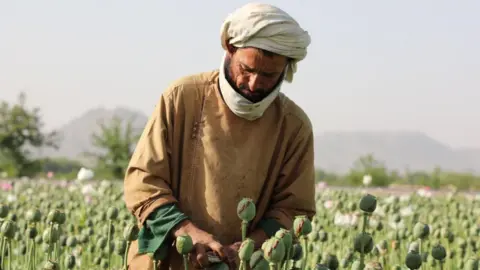 Getty Images
Getty ImagesOpium farming in Afghanistan has dropped significantly following a ban imposed by the Taliban government in 2022, the United Nations said.
The total area of land for growing opium poppy shrank 20% since last year, while the amount of opium has fallen by 32% over the same period, the UN's Office on Drugs and Crime said in a survey.
Afghanistan used to produce more than 80% of the world's opium, with heroin made from Afghan opium making up 95% of the market in Europe.
But after retaking power the Taliban banned the practice in April 2022, saying opium was harmful and went against their religious beliefs. The UN said most farmers continued to observe the ban despite "severe economic challenges".
Many Afghan farmers are harvesting cereals, but poppy - from which opium, the key ingredient for the drug heroin can be extracted - continues to be "far more profitable" than legitimate crops, the UNODC noted.
Over 40% of available farmland has remained fallow because of the lack of profitable alternatives, limited agricultural outputs and, adverse climate conditions it added.
The total area under opium poppy cultivation this year was estimated at 10,200 hectares, mostly in the north-east of the country, with Badakhshan province accounting for the largest share. Before the 2022 ban, more than 200,000 hectares were under poppy cultivation in Afghanistan.
Four provinces with opium poppy cultivation in 2024 (Balkh, Farah, Laghman, Uruzgan) were declared opium poppy-free in 2025.
"The near elimination of cultivation from traditional strongholds illustrates the scale and durability of the ban on opium poppy cultivation," the survey said.
The Taliban's efforts to destroy opium fields occasionally sparked violent resistance from the farmers, particularly in the north-east, the UNODC said, noting that casualties were reported during clashes in several districts of Badakhshan.
But the vast majority of Afghan farmers adhere to the ban issued by the Taliban's supreme leader.
However, farmers say they lack support to grow alternative crops - as a result, they have to choose between poverty or punishment.
"If we violate the ban, we face prison. If we comply, we face destitution," one unnamed farmer in Helmand province told BBC Pashto this summer.
"If there's no money, then I'll grow poppies again."
Poppy fields are no longer openly visible in Helmand, but they do still exist.
Another farmer showed BBC Pashto around his small walled-off poppy field in front of his house in a remote village. He's risking jail, but he said he had no option.
"What should I do? I'm forced to do this - I have nothing else. I can't even provide food for my family."
While opium is in decline, trafficking in synthetic drugs such as methamphetamine have risen since the ban, the UNODC said.
Seizures of such drugs in and around Afghanistan was 50% higher in late 2024 compared with the previous year.
Organised crime groups favour synthetic drugs which are easier to produce and less vulnerable to climate shocks, the UNODC said.

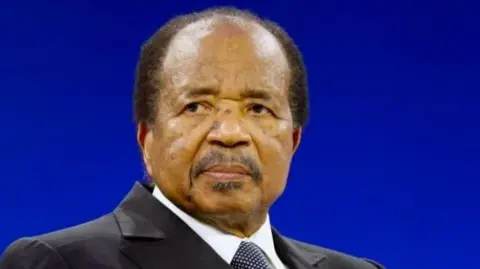 Reuters
ReutersCameroon's 92-year-old leader Paul Biya has been sworn in for another seven years as president in a ceremony at the country's parliament in Yaoundé.
Biya won a controversial eighth term in a fiercely disputed election last month.
He has been in power for 43 years, and addressed only one campaign rally before the election.
The nonagenarian, the world's oldest head of state, won 54% of the vote, compared to the 35% of Issa Tchiroma Bakary, according to the official results. Tchiroma Bakary maintains he was the rightful winner of the poll and has accused the authorities of fraud, which they have denied.
The announcement of the result led to major protests across the country.

 Getty Images/BBC
Getty Images/BBCGo to BBCAfrica.com for more news from the African continent.
Follow us on Twitter @BBCAfrica, on Facebook at BBC Africa or on Instagram at bbcafrica

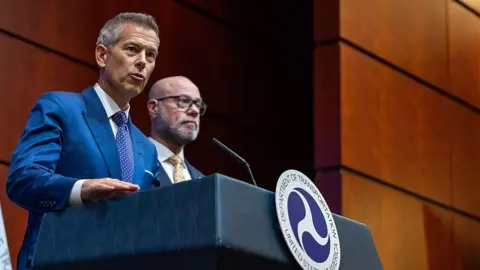 Getty Images
Getty ImagesTransportation Secretary Sean Duffy warned there will be a 10% reduction in air travel capacity at 40 major airports in the US starting Friday morning, if the government shutdown continues.
The decision was made because air traffic controllers have been reporting issues with fatigue, the head of the Federal Aviation Administration (FAA) said at a briefing with Duffy on Wednesday.
"It is unusual, just as the shutdown is unusual, just as the fact that our controllers haven't been paid for a month is unusual," said FAA chief Bryan Bedford
During the shutdown, now the longest in US history, controllers have had to keep working without pay, prompting some to call out sick or take side jobs.
The flight reductions will be gradual, starting at 4% of domestic flights on Friday, then rising to 5% on Saturday and 6% on Sunday, before hitting the full 10% next week, Reuters reported after the announcement, citing four unnamed sources.
The names of the affected airports - all high-traffic locations - will be released on Thursday, the officials said.
The cancellations could affect between 3,500 and 4,000 flights per day.
"We are seeing pressures build in a way that we don't feel - if we allow it to go unchecked - will allow us to continue to tell the public that we operate the safest airline system in the world," Bedford said.
Duffy said air travel is still safe, and the decision to cancel the flights was being made to maintain safety and efficiency.
If the shutdown continues and adds more pressure to the system, additional restrictive measures may be required, Bedford said.
A spokesperson for Southwest Airlines, the fourth-largest carrier in North America, said in a statement that the company is still evaluating how the flight restrictions will affect its services, and will let customers know as soon as possible.
"We continue to urge Congress to immediately resolve its impasse and restore the National Airspace System to its full capacity," the spokesperson added.
Delta Airlines declined to comment. The BBC has also reached out to other major US airlines.
Once government funds ran out on 1 October, most federal workers were sent home and told they would be paid once the government reopened. Those deemed essential, like controllers, though, had to keep doing their jobs without pay.
Almost immediately after the shutdown started, airports began feeling the effects. Some had to ground flights for hours after air traffic controllers called out sick, while others relied on controllers from other airports.
Nick Daniels, the president of the labor union representing more than 20,000 aviation workers, put the situation into stark terms on Wednesday.
"Air traffic controllers are texting 'I don't even have enough money to put gas in my car to come to work,'" he told CNN.
"We base what we do day in and day out on predictability," he said. "Right now there is no predictability."
Duffy warned earlier this week that the flight cancellations may be coming, as half of the country's 30 major airports experience staff shortages.
He previously said there's a risk that comes with air traffic controllers taking on additional jobs during the shutdown, and had threatened to fire controllers who do not come to work.
"They have to make a decision, do I go to work and not get a paycheque and not put food on the table? Or do I drive for Uber or DoorDash or wait tables?" Duffy said on ABC on Sunday.
中国科研团队发现抑郁症新疗法,相关研究成果星期四(11月6日)发表于国际期刊《自然》。
综合第一财经、中国《科技日报》和北京日报客户端报道,北京脑科学与类脑研究所罗敏敏实验室在上述期刊发表的研究报告,首次确认腺苷(Adenosine)信号通路是氯胺酮(Ketamine)与电休克疗法(ECT)产生快速抗抑郁作用的共同核心机制,为开发更安全有效的抑郁症疗法提供了明确靶点。
上述研究第一作者、北京脑科学与类脑研究所博士后乐晨雨受访时说,抑郁症研究的根本难点在于其病因的复杂性与治疗反应的不可预测性。尽管疗法众多,但约三分之一的患者会发展为“难治性抑郁症”,对常规药物无响应。氯胺酮和ECT恰恰对这部分患者有强效,因此阐明它们的作用机制,已成为开发新一代疗法的关键突破口。
2019年5月,乐晨雨在进行动物实验时发现,小鼠注射了氯胺酮,并进行电休克治疗后,均出现了强烈的腺苷信号表达。两种看似迥异的抑郁症疗法,竟受同一种“开关”控制。
罗敏敏团队依据这一原理,找到了可以安全、可控诱发大脑内腺苷释放的抑郁症新疗法——间歇性低氧干预方案,并自主开发了用于抑郁症人体治疗的相关设备。团队目前已就该疗法与北京安定医院合作开展临床试验,预计2026年将产出阶段性成果,后续还将推进多中心合作。

据《国际邮报》Courrier international 周四11月6日更新报道,中国有数千万儿童和青少年罹患心理疾病。近年来,各类研究持续警示中国未成年人心理健康状况堪忧。如果说教育部呼吁减轻学业压力,未成年人过度使用手机也成为被关注的问题。
《国际邮报》这篇报道说,“每四名中国青少年就有一人自残。” 这是中国科普网站“果壳 Guoke”在10月31日的警告。该网站观察到近年来这一令人担忧的趋势不断加剧。“越来越多的教师和家长开始讨论一个棘手的问题——青少年的非自杀性自伤行为。”
一周前,10月24日,中国教育部也就中小学心理健康问题作出回应,并提出多项措施加以应对。据专注中国官方数据分析的博客“数据开放”称,此次全国性反应“前所未有”,某种程度上也证实了事态的严重性。
报道续称,中国教育部公布的“十项措施”着力为学生提供更有力的心理健康支持。具体措施包括:减轻学生学业压力,严格控制作业总量,禁止“重复和惩罚性”作业,鼓励每周实行“无作业日”,以及禁止按考试成绩对学生排名。
2023年时,由中国青少年研究中心与共青团中央联合完成的《中国青年发展报告》已揭示,17岁以下青少年心理健康状况令人担忧。“三千万儿童和青少年罹患不同程度的情绪与行为障碍。” 报道表示这是中国官媒央视报道的数据。
家庭压力与手机使用
报道提到,同年出版的《2023中国心理健康蓝皮书》也印证了上述情况。根据该研究,高中生抑郁症患病率达40%,初中生为30%,小学为10%。心理健康状况恶化的原因包括家庭压力、父母对学习成绩的高要求,以及缺乏对孩子的关爱。
此外,中国科学院心理研究所发布的《2024年中国农村欠发达地区学生心理健康报告》也揭示了农村儿童的严重问题。据该报告指出,“有三成农村儿童面临抑郁风险,这个比例远高于全国平均14.8%。”
报道表示,手机成瘾也被认定为重要影响因素。中国青少年网络行为调查报告显示,2024年12—18岁青少年每天平均花4.2小时在手机上。同时有超过70%青少年表示,如果离开手机就会感到极度焦虑。
报道提问:“为什么手机危害如此之大?” 并引述“数据开放 ShujuKaifang”博客做出分析:“手机带来情绪不稳定,过度使用导致睡眠不足也是心理健康恶化的重要因素。”
报道总结指出,据《中国青年报》援引中国睡眠研究会2022年发布的研究报告,调查发现小学生、初中生平均每晚分别睡7.65小时、7.48小时,高中生仅为6.5小时。而中国教育部建议三年龄段青少年每晚应分别睡眠10小时、9小时和8小时。这份中国日报同时警示:“超过六成受访青少年会为了玩手机、打游戏和看电视剧而牺牲睡眠时间。”

(德国之声中文网)去年卸任的台湾前总统蔡英文将于周六(11月8日)前往柏林,并将在下周一的柏林自由大会上致辞。
蔡英文办公室在一份声明中表示,蔡前总统希望此行可加深台湾与德国以及欧洲志同道合的民主国家之间的合作与交流。
据柏林自由大会信息,2025年11月10日将举行首届会议,由柏林旅游局、阿克塞尔·施普林格自由基金会和世界自由大会联合发起。德国联邦议会议长克勒克纳(Julia Klöckner)、教育部长普里恩(Karin Prien)将出席。大会将有60多位国际嘉宾致辞,来自台湾的还有数位部长唐凤。中国流亡艺术家巴丢草也将参与讨论。官网上也有蔡英文作为发言嘉宾的简介。
2025年11月8日至15日,柏林将举行首届柏林自由周活动,发起方还包括柏林重新评估德国统一社会党独裁政权委员会和罗伯特·哈维曼协会。柏林自由大会是自由周的一大亮点。自由周的开幕活动由联邦档案馆—斯塔西档案馆协办。自由周期间将举行一系列活动,其中包括与德台对话平台、台北驻柏林代表处合作举办的活动。
德外长刚刚推迟访华
德国外交部一位发言人周三表示,蔡英文是应一个公民社会团体的邀请访德。“这不是官方访问,而是个人行程。没有与联邦政府成员会晤的计划。”
蔡英文2012年就任总统后,中国切断与台湾的定期对话机制。蔡英文的继任者赖清德更是被北京称为“分裂分子”。
本周一,中国外长王毅在与德国外长瓦德富尔通电话时表示,柏林应反对“台独”。上月,瓦德富尔推迟了首次访华行程。
9月,台湾外交部长林佳龙访问欧洲多国,包括奥地利、捷克、波兰、意大利。
周三,林佳龙在台北向媒体表示,他对欧洲的访问旨在加强关系,并补充说,外交部已设立欧洲工作组。
蔡英文讲流利的英文。卸任后也曾访问欧洲国家,包括英国和法国。
去年,蔡英文访欧前夕,台湾总统办公室表示,全力支持蔡前总统持续深化台欧关系。
(综合路透社等)
DW中文有Instagram!欢迎搜寻dw.chinese,看更多深入浅出的图文与影音报道。
© 2025年德国之声版权声明:本文所有内容受到著作权法保护,如无德国之声特别授权,不得擅自使用。任何不当行为都将导致追偿,并受到刑事追究。
户晨风把人分成三六九等?


据英国《金融时报》报导称,美国特朗普政府在与东南亚国家的贸易协定中加入了所谓“毒丸条款”,这为华盛顿与北京的战略竞争增添了一件新的外交武器。这些条款被嵌入到上周与马来西亚和柬埔寨签署的两项新协议中,威胁指,如果这两个国家中的任何一个签署了损害“美国基本利益”或对美国安全“构成实质性威胁”的竞争性协议,与美方的协议将终止。
贸易专家表示,这些极其罕见且影响范围极广的条款,相当于对与中国贸易关系密切的小国进行一次“忠诚度测试”,并有可能重塑美国未来在东南亚乃至更广地区的贸易谈判格局。
瑞士洛桑国际管理学院地缘政治与战略学教授埃文内特(Simon Evenett)分析指:“美国正通过这些协议维护其市场准入优势,试图重塑近几十年来形成的‘亚洲工厂’格局”。
埃文内特指出,这些条款范围过广,赋予美国单方面终止协议的权力,使华盛顿在整个东南亚地区拥有了新的影响力。与马来西亚的协议还包含一项条款,要求马来西亚遵守美国的制裁和其他经济限制措施。
埃文内特本周在一篇论文中写道,“归根结底,‘毒丸条款’将贸易协定从纯粹的商业工具转变为管理伙伴国更广泛的对外经济政策方向的工具”。
报导提及,尽管2020年《美墨加协定》中存在部分“毒丸条款”的法律先例,但埃文内特认为,该协定中的条款对触发条件有明确的法律定义,这与美方与马来西亚和柬埔寨协议中较为宽泛的条件不同。
弗林特全球咨询公司的贸易专家洛威(Sam Lowe)则指出,马来西亚和柬埔寨与美国签署的协议本质上是策略性的。他说道,“首先,这些协议旨在缓解特朗普政府贸易政策的过度之处,它们会一直有效,直到失效为止。届时,就必须采取其他措施了”。
布鲁塞尔智库、世界大型企业联合会经济战略中心主任德梅尔齐斯(Maria Demertzis)称,这些“毒丸条款”是“多边主义棺材上的又一颗钉子”,反映了美国对中方试图主导区域供应链的担忧。不过,这些计划究竟能在多大程度上限制或减缓供应链与中国的融合,还有待观察。
德梅尔齐斯补充道:“这相当于特朗普在说‘我是老大,你们得跟我打交道’。你必须扪心自问,这些国家有什么筹码可以抵挡这些‘毒丸条款’?其目的是为了阻止中国通过这些东盟国家渗透美国”。
报导称,除了上述“毒丸条款”外,美国还考虑对经由东南亚港口转运的中国制造商品加征40%的“转运”关税,此举被视为进一步加剧中国与其区域贸易伙伴之间的隔阂。贸易分析人士将密切关注美国与包括泰国和越南在内的其他东南亚国家正进行的“对等关税”谈判的结果,以判断这些谈判是否也包含“毒丸条款”条件。
与马来西亚的贸易协议在东南亚国家引发强烈反弹,批评人士称该协议损害了马来西亚的主权和长期以来在外交政策上保持的中立立场。马来西亚投资、贸易和工业部坚称,美国无权“强迫马来西亚作出任何决定。他们只是要求在采取任何行动前进行讨论或磋商”。
特朗普近期访问吉隆坡,与东盟11个成员国的领导人会晤,期间他展开了一系列“闪电式”的贸易谈判,并签署了与柬埔寨和马来西亚的贸易协议。
与东南亚地区许多国家的谈判最初并非华盛顿的优先事项,但特朗普与柬埔寨和泰国领导人就夏季边境冲突后达成的和平协议进行的互动,重新激活了贸易谈判。
美国对柬埔寨和泰国,以及促成和平谈判的时任东盟轮值主席国马来西亚的关税从高达49%降至19%。然而,由于泰国近期政府更迭,美泰之间的贸易协议一直处于搁置状态。
与越南的谈判愈发艰难。政治风险咨询公司、欧亚集团东南亚区负责人芒福德(Peter Mumford)指出,“河内方面正力求获得更有利的条件——这一策略也存在风险——河内方面对20%的对等关税税率感到不满,而大多数其他东盟国家的税率仅为19%”。
美方与柬埔寨和马来西亚协议中的胁迫性条款,使那些试图在该地区平衡中国——通常是主要供应国,与美国——重要出口市场之间关系的较小东盟国家面临更高风险。
在特朗普4月份宣布“解放日”关税后的几周内,中国国家主席习近平开启了东南亚访问之行,旨在加强与邻国的关系。中国外交部发言人还多次表示,“中方坚决反对任何一方以牺牲中方利益为代价达成交易,换取所谓关税减免。如果出现这种情况,中方绝不接受,将坚决予以反制,维护自身正当权益”。
上周特朗普访问吉隆坡后,东盟与中国签署了中国—东盟自贸区3.0版升级议定书,旨在进一步扩大双方2024年达到7710亿美元的贸易额。这也表明东盟国家将继续试图在中美之间周旋。
一位特朗普政府官员表示,美方的目标是“通过关税、双边谈判和协议消除破坏性的贸易逆差,保护美国产业和工人”。

© Gabriela Bhaskar/The New York Times

© Eric Gay/Associated Press
A man at the centre of an organised crime network has been secretly filmed telling BBC undercover reporters how he can help to erase fines of up to £60,000 for employing illegal workers.
The self-described "accountant" is among a group of Kurdish men, first exposed in a BBC investigation on Tuesday, who enable migrants to work illegally in mini-marts, by registering the businesses in their own name.
The man, who goes by the name of Shaxawan, told the two journalists that he and his associates could help migrants - including asylum seekers - to set up businesses illegally and "confuse" immigration enforcement.
Operating from a solicitor's office in Huddersfield, he said he had "customers in every city".
In Companies House listings, Shaxawan is named as Kardos Mateen, a British resident in his 30s, and has been the director of 18 businesses across the north of England.
When later confronted by us, with details of his claims, he denied any wrongdoing.
Trading Standards confirmed it has found illegal cigarettes being sold in many businesses registered under the name Kardos Mateen, and the BBC was sold counterfeit tobacco in four mini-marts where he was listed as the director.
The BBC News two-part investigation has revealed the sophistication and scale of criminal networks profiting from undocumented working on UK High Streets. Loose regulation of Britian's labour market is acting as a pull factor for those entering the UK illegally, the government has acknowledged.
Shaxawan made several claims to our reporters:
Our reporters also spoke to a paralegal, with Shaxawan present, who offered to "make documents", including "business agreements", to avoid fines.
It took months to set up the first meeting with Shaxawan.
He pulled up at a busy Manchester retail park in a white 4x4 BMW, in the belief he was meeting an asylum seeker who was looking to run a mini-mart and sell illegal cigarettes.
In fact, he was meeting Saman (not his real name), a Kurdish journalist working undercover for the BBC.
In a cafe, Shaxawan freely shared details of what he and his associates were able to offer: "We are a group. Each of us provides a service and works together," he said.
He explained how he worked with an "English woman who dealt with electricity, gas and bailiffs". And when Immigration Enforcement issues a fine, he added, "she makes it zero".
"I will… set up your company, provide the [card] machine, get you electricity, speak to your landlord," Shaxawan assured him. "I'll make sure you have no issues."

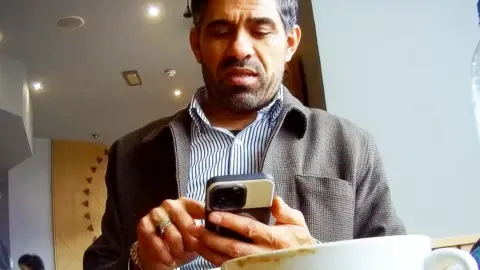
He told Saman that he should register a mini-mart business in the name of someone else - what is sometimes known as a "ghost director". This would cost £400 per month, and getting access to a business bank card would require a one-off payment of £140, he said.
The ghost director would be the one to "take the risk" if the shop was raided by law enforcement and fines issued, he explained.
"That's why you're paying," he said.
To show he was genuine and to provide reassurance, Shaxawan called someone he said could act as ghost director.
Saman explained to the man on the phone that he did not have asylum status.
"Don't worry" came the reply. "As Mr Shaxawan says, send the money at the end of the month."
ID documents sent to Saman by phone swiftly after his meeting with Shaxawan, revealed that the potential ghost director was a 28-year-old from Iran called Bryar Mohammed Zada.
Mr Zada has racked up company directorships for 20 car washes and mini-marts from Newcastle upon Tyne to Essex in the past 12 months, according to Companies House records.
Undercover journalists found illegal cigarettes being sold at four of Mr Zada's businesses.
Mr Zada did not respond to the BBC's questions.
Saman later called Shaxawan asking for a second meeting, and Shaxawan suggested they meet at RKS Solicitors in Huddersfield.
The firm is registered with the Law Society and has branches in Dewsbury and Sheffield.
The meeting was arranged on the premise Saman needed help to deal with an illegal working fine which had been given to a family member.
There is no mention of the names "Shaxawan" or "Mateen" on the firm's website.
But Saman had called Shaxawan when he was outside the solicitors, and Shaxawan opened the front door, and welcomed him in.
He led our reporter upstairs to an office, where he outlined how Saman's family member could avoid the fine, transferring company details to someone else for a fee.
RKS Solicitors told the BBC it had no connection to any alleged immigration or fine-related misconduct.
We later got our second undercover reporter, "Ali", who is also Kurdish, to investigate further by calling the same RKS Solicitors branch - but without mentioning Shaxawan.
Posing as a Kurdish mini-mart owner, he told the woman who answered the phone that he had received a £60,000 fine from Immigration Enforcement for employing two people without the right to work.
He was given an appointment with Zohaib Hussain, who is listed on RKS's website as a paralegal - someone who can advise on legal matters but is not a qualified solicitor and works under supervision.
As Ali was arriving for his appointment with Mr Hussain at the RKS offices, he came across Shaxawan outside. On the street, Shaxawan repeated the claim he had made to Saman - that he could make fines go to "zero" with no comeback from authorities.
Shaxawan again referred to the "English woman" he mentioned in the earlier meeting, and said she could make sure that fines for illegal working were reassigned to other people, as if they were the culpable business owner.
Shaxawan said these would be Hungarians who "live nearby". They would be paid between £2,000-£3,000 and their names would be used to assume liability for the fines.
He did not give any more details, but an immigration lawyer we spoke to suggested this could work much like receiving a speeding fine, and giving the name of someone else on the paperwork as the person who was driving - and therefore liable to pay the penalty.
Shaxawan said the overall cost to Ali would be about £4,600 per illegal worker. He said he had done this successfully in "Manchester, Birmingham, Blackpool and Leeds", with the process usually taking about four weeks.
He added Ali's company would then need to be closed, reopened and re-registered under a new name.
Ali was then let into the RKS branch, and Shaxawan came inside too. Inside an office, Shaxawan showed him documents on his phone detailing the people he claimed to have helped before.
Shaxawan claimed the scam would confuse Immigration Enforcement officers who would not have time to check the details.
Ali was then introduced to the paralegal, Zohaib Hussain. Shaxawan stayed in the room throughout the meeting.
Speaking quickly and in a hushed tone, Mr Hussain fired questions at our reporter about his cover story - the mini-mart and the immigration fine.
"How many illegal workers? So how much is the fine? How many times did they catch you?"
Then, with a chuckle, he asked what was sold in the mini-mart: "Do you sell vapes? Legal or illegal? Bit of both as well?"
When Ali said his mini-mart was registered under someone else's name, Mr Hussain said: "Very clever then, already very clever."
The first step, Mr Hussain said, would be to deal with the fine.
If Ali was not let off the fine, he continued, "we will look at certain other things that we have to do as precautions".
"Sometimes we might have to make documents," said Mr Hussain, such as "business agreements".
Ali then asked if the fine would be transferred to someone else's name. Mr Hussain said that would be "the last resort."
Before the meeting ended, Mr Hussain warned that the immigration authorities would want to jump on the fine straight away - making a cutting-motion across his throat.
He said his charges would be £3,500 and he "would look after us". He then asked Ali to share any future Immigration Enforcement letters with Shaxawan.

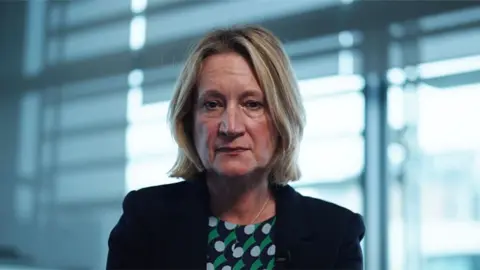
We showed our undercover filming and translations to senior immigration lawyer Bryony Rest, who told us Hussain was "clearly offering to falsify documents".
There were "likely fraud and immigration offences" taking place, she said, and she would expect law enforcement to investigate.
When we later contacted Mr Hussain for comment he replied by email saying he denied "all allegations, insinuations, and claims" we had put to him.
"For clarity, the individual named in your correspondence, Mr Shaxawan Jawad, is not associated with me in any capacity; professional, personal, or otherwise."
In a statement to the BBC, RKS Solicitors said the company was carrying out an internal review and "the individual concerned" had been suspended pending further investigation.
"We are already informing" the Solicitors Regulation Authority (SRA), it added.
"Mr Hussain is employed as a paralegal under strict supervision… The individual is not authorised or instructed to provide immigration and tax advice."
The firm did not comment on Shaxawan Jawad. It said it did not condone unlawful conduct and was committed to the "highest standards of professionalism, integrity, and public service".
Shaxawan, otherwise known as Kardos Mateen, told us by email that he categorically denied "every allegation, insinuation and claim made" in our reporting, and said that he was "not employed by, associated with, or acting on behalf of RKS Solicitors in any capacity".
Home secretary Shabana Mahmood, said the Home Office would investigate the BBC's findings.
"Illegal working and linked organised criminality creates an incentive for people to come here illegally. We will not stand for it," she said.
Additional reporting Phill Edwards and Kirstie Brewer

 BBC
BBCNote: This article does not contain spoilers related to the final episode
The final of BBC One's The Celebrity Traitors was uploaded in error by overseas broadcasters before it was due to be shown in the UK on Thursday, the BBC has confirmed.
It is understood the final was seen by a few hundred people who subscribe to streaming service Crave in Canada; they were able to watch it for a couple of hours before it was removed.
The episode being uploaded was not a BBC mistake, and a spokesperson for the corporation urged those who believe they know the outcome of the show to "avoid sharing potential spoilers".
''We kindly ask anyone who thinks they know the outcome of The Celebrity Traitors to keep whatever they believe they know to themselves," the statement said.
"Please avoid sharing potential spoilers so that the millions of fans who have been faithfully following every twist and turn of the series can enjoy the final this evening.''
The Celebrity Traitors is currently the most-watched TV show of the year, with an average of 12.6m people across the first four episodes.
Fans of the show have been waiting to see whether traitors Cat Burns and Alan Carr will win the £100,000 prize for charity or whether faithfuls Joe Marler, Nick Mohammed and David Olosuga will be triumphant.
Thursday evening's final episode is extended to 70 minutes on BBC One, with an extended edition of The Celebrity Traitors: Uncloaked set to air on BBC Two after the final.
Host Ed Gamble will be joined by the cast and Claudia Winkleman as they react to the show's outcome.

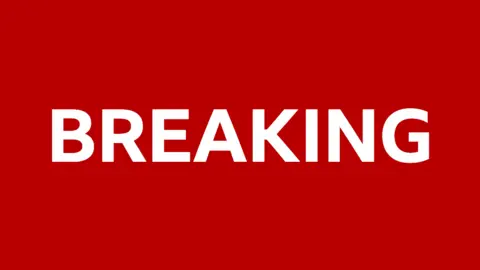 BBC
BBCA record number of referrals were made to the government's anti-terror programme Prevent in the year to March 2025, according to new data.
A total of 8,778 referrals were made - up 27% from 6,922 the previous year.
The majority referrals were made for individuals who had "no identified ideology" - at 56%.
This was followed by extreme right-wing ideology at 21%, and then Islamist extremism at 10%.
Children aged 11-15 represented the largest proportion of referrals where the individual's age was known, at 36%.
Prevent is the government's scheme to divert people from terrorism.
This breaking news story is being updated and more details will be published shortly. Please refresh the page for the fullest version.
You can receive Breaking News on a smartphone or tablet via the BBC News App. You can also follow @BBCBreaking on X to get the latest alerts.

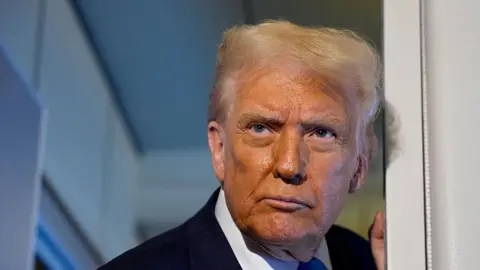 Getty Images
Getty ImagesUS President Donald Trump has issued a fresh threat to target Nigeria if the government "continues to allow the killing of Christians".
In a video released on Truth Social he pledged to "do things to Nigeria that Nigeria is not going to be happy about" and "go into that now-disgraced country guns-a-blazing". But the White House's interest in this subject did not come out of the blue.
For months, campaigners and politicians in Washington have been alleging that Islamist militants were systematically targeting Christians in Nigeria.
But the BBC has found that some of the data being relied on to come to this conclusion are difficult to verify.
In September, popular television host and comedian Bill Maher upped the ante describing what was happening as a "genocide" .
Referring to the Boko Haram group, he said "they have killed over 100,000 since 2009, they've burned 18,000 churches".
Similar figures have also been gaining traction on social media.
The government in Abuja has pushed back on these claims describing them as "a gross misrepresentation of reality".
It did not deny that there was deadly violence in the country. But officials said that "terrorists attack all who reject their murderous ideology - Muslims, Christians and those of no faith alike".
Other groups monitoring political violence in Nigeria say the number of Christians who have been killed is far lower, and say most victims of the jihadist groups are Muslims.
Nigerian security analyst Christian Ani said that while Christians had been attacked as part of a broader strategy of creating terror, it was not possible to justify claims that Christians were deliberately being targeted.
And Nigeria is facing various security crises across the country, not just violence by jihadist groups, and these have different causes so should not be confused.
The country's 220 million people are roughly evenly split between followers of the two religions, with Muslims in the majority in the north, where most attacks take place.
Prominent Texas Senator Ted Cruz has been campaigning on the issue for some time and, highlighting similar figures to Maher on 7 October, he wrote on X that "since 2009, over 50,000 Christians in Nigeria have been massacred, and over 18,000 churches and 2,000 Christian schools have been destroyed".
In an email to the BBC, his office made clear that, unlike Maher, the senator was not calling this a "genocide" but describing "persecution".
But Cruz accused Nigerian officials of "ignoring and even facilitating the mass murder of Christians by Islamist jihadists". Trump, echoing these words, has described Nigeria as a "disgraced country", saying the government "continues to allow the killing of Christians".
The Nigerian government has denied this, saying it is doing its best to tackle the jihadists. Some officials have also welcomed the prospect of the US helping fight the insurgents, as long as it is not done unilaterally.
The authorities have certainly struggled to contain the violent jihadist groups and criminal networks – most weeks seem to come with stories of fresh attacks or abductions.
Boko Haram – infamous for kidnapping the Chibok girls just over a decade ago - has been active since 2009, but its activities have been concentrated in the north-east, which has a majority Muslim population. Other jihadist groups have also emerged, including the Islamic State West Africa Province but they also operate in the north-east.
The figures for Christian deaths cited by some in the US are alarming, but assessing their accuracy is hard.
When it comes to the source of the data, on a podcast in September, Cruz directly referred to a 2023 report by the International Society for Civil Liberties and Rule of Law (InterSociety) - a non-governmental organisation that monitors and tracks human rights abuses across Nigeria. His office also sent the BBC a number of links to online articles on the issue – most of which pointed back to InterSociety.
Maher did not respond to a BBC request for the source of his figures, but given certain similarities to those used by Cruz, it seems likely that he was drawing on InterSociety's work.
For data that could be shaping US policy towards Nigeria, InterSociety's work is opaque.
In its report published in August, which was an amalgamation of previous research and updated numbers for 2025, it said jihadist groups in Nigeria had killed over 100,000 Christians in the 16 years since 2009.
It also notes that 60,000 "moderate Muslims" also died during this period.
InterSociety did not share an itemised list of sources, making it hard to verify the total number of deaths it reports.
In response to this criticism, the organisation has said that "it is almost impossible to reproduce all our reports and their references dating back to 2010. Our easy method is to pick their summary statistics and add them to our fresh discoveries or findings to make up our new reports." But the data sources quoted by InterSociety in its reports do not reflect the figures published.

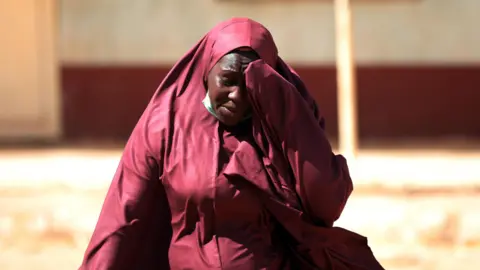 AFP via Getty Images
AFP via Getty ImagesLooking at deaths this year alone, InterSociety concluded that between January and August just over 7,000 Christians were killed. This is another figure that has been widely shared on social media, including by Republican Congressman Riley M Moore, who has been a leading voice on this issue in the House of Representatives.
InterSociety includes a list of 70 media reports as some of the sources to its findings on the attacks against Christians in 2025. But in about half of these cases, the original news stories did not mention the religious identity of the victims.
For example, InterSociety quoted an Al Jazeera report of an attack in north-eastern Nigeria, saying that according to the news organisation "not less than 40 farmers mainly Christians were abducted by Boko Haram in Damboa part of Borno State".
But Al Jazeera's report didn't mention that the victims were "mainly Christians", as quoted by InterSociety.
InterSociety told the BBC that it does further analysis to identify their background, without explaining how exactly in this case, but did mention their knowledge of local populations and use of "Christian media reports".
Adding the number of death referenced in these reports cited by InterSociety does not result in the stated total of 7,000.
The BBC added up the number of deaths from the 70 reports and found that the total was around 3,000 deaths. Some of the attacks also appear to be reported more than once.
To explain the shortfall, InterSociety says it also estimates the number of people it believes have died in captivity and includes eyewitness testimonies it cannot make public.
Included in its list of perpetrators are Islamist militant groups like Boko Haram but also Fulani herders. The Fulanis are a mainly Muslim ethnic group who live across West Africa and have traditionally earned their living by raising cattle and sheep.
The inclusion of the Fulani herders, who InterSociety describes as "jihadists" in all its reports, however, is the source of some controversy in Nigeria over how these killings should be categorised.
While the herders tend to be Muslim, many researchers in this field reject the description of this as a religious conflict, saying it is often about access to land and water.
Fulani herders have come into conflict with both Muslim and Christian communities across Nigeria.
Security analyst Mr Ani argues that "to say that they are jihadists - it's a far stretch. It has nothing to do with that. It has a lot more to do with rogue and criminal elements."
Confidence McHarry, a senior security analyst at Africa-focussed consultancy SBM Intelligence, says the clashes are often due to ethnic tensions and competition over resources.
"It might be ethnic in nature - they're seeking to grab lands, they're seeking to expand territory, but the more they displace communities and the more they attack worship centres, the more these things tend to get looked at in that light."
InterSociety also mention what are known in Nigeria as bandits, saying they are mostly ethnic Fulanis in the north-west of the country, who are involved in kidnapping and have a track record of killing both Christians and Muslims.

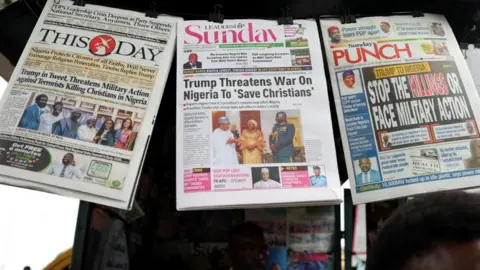 Reuters
ReutersConcerns about threats facing Nigerian Christians has been discussed by politicians in the United States and by international Christian groups for a long time.
In previous years, it has been raised in the US by the Indigenous People of Biafra (Ipob) – a group proscribed in Nigeria which is fighting for a breakaway state in the mainly Christian south-east.
Intersociety has been accused by the Nigerian military of being linked to Ipob but the NGO has denied any connection.
Another Biafran separatist group has also claimed to have played a key role in promoting the "Christian genocide" narrative in the US Congress.
The Biafra Republic Government in Exile, BRGIE, described it as a "highly orchestrated effort", saying it had hired lobbying firms and met US officials, including Cruz.
The senator declined to comment.
InterSociety's figures are far higher than other sources of data on the number of Christians killed in Nigeria.
Acled, which closely monitors violence in West Africa, has produced very different numbers. The sources for its published findings can be easily traced and checked.
Its senior analyst, Ladd Serwat, did not directly address the InterSociety reports but told the BBC that the figure of 100,000 deaths, touted on social media, would include all acts of political violence in Nigeria, and so it would not be true to say this is the number of Christians who have been killed since 2009.
Acled has found that just under 53,000 civilians - Muslims and Christians - have been reported killed in targeted political violence since 2009.
Looking at just the period from 2020 to September 2025, Acled says that about 21,000 civilians were killed in abductions, attacks, sexual violence and the use of explosives.
It identified 384 incidents where Christians were specifically targeted from 2020 to September 2025, in which 317 people died, meaning they account for just a small proportion of those killed.
For its sources, Acled relies on traditional media, social media where the reports can be verified, rights groups as well as local partners.
In a Truth Social post last Friday, Trump cited a figure of 3,100 Christians killed. He was referring to a report by Open Doors for deaths for the 12 months from October 2023, a White House official said.
Open Doors is a charity which researches the persecution of Christians worldwide.
In its reporting it says that while 3,100 Christians died, 2,320 Muslims were also killed in that 12-month period.
Open Doors also includes what it calls "Fulani Terror Groups" in its list of perpetrators and says they were responsible for almost a third of Christians killed during those 12 months.
Frans Veerman, senior research fellow at Open Doors, said "what we see now is that Christians are still targeted, but increasingly some Muslims are targeted by Fulani militants".
Analysts say there are many violent attacks on mosques and Muslim communities in the north-west of the country.
"One could say that this is part of the broader insecurity," said Mr McHarry. "The reason why it is not assumed to have a religious dimension is down to the fact that the identities of the people who are carrying out these attacks against Muslims are themselves Muslims."

 Getty Images/BBC
Getty Images/BBCGo to BBCAfrica.com for more news from the African continent.
Follow us on Twitter @BBCAfrica, on Facebook at BBC Africa or on Instagram at bbcafrica

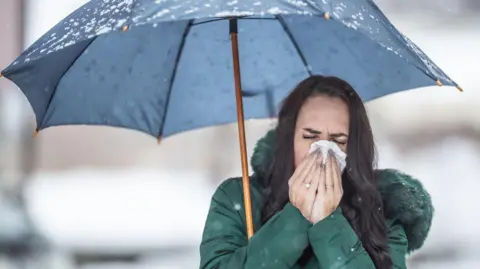 Getty Images
Getty ImagesThe UK is facing a long, drawn-out flu season, the boss of the NHS in England is warning.
Sir Jim Mackey said there is "no doubt" this winter will be one of the toughest the health service has faced.
It comes as flu rates have started climbing early this year, which is causing concern because the winter vaccination campaign has only just got under way and there are lots of vulnerable people yet to get protected.
NHS England is issuing a "flu jab SOS", urging those eligible for the free vaccine to come forward quickly for it.
More than 13 million people have been vaccinated so far this year, but that is still more than 5 million below the number who were jabbed last winter.
Sir Jim said: "There's no doubt this winter will be one of the toughest our staff have ever faced.
"Since stepping into this role, the thought of a long, drawn-out flu season has kept me awake at night. And, unfortunately, it looks like that fear is becoming reality.
"Australia has just endured its worst flu season on record — over 410,000 cases — and all the signs suggest the NHS will face similar challenges in the months ahead. From December through to March, our hospitals will be at capacity."
People aged 65 and over, pregnant women and those with certain long-term health conditions can get a free flu jab on the NHS. Appointments can be booked online, by phoning 119 or at local pharmacies and GPs.
Children aged two to 16 can also get vaccinated with a nasal spray. That's mainly to help stop flu spreading.
Other people can buy a flu vaccine from high street chemist shops and some supermarket pharmacies.
Two of the worst winter flu seasons of the past decade have been seen in the last three years, something partly attributed to the bounce-back of the virus after Covid restrictions were lifted combined with immunity being low.
Last year, nearly 8,000 people died from flu, and in the 2022-23 flu season there were nearly 16,000 deaths.
Flu rates are currently three times higher than normal for this time of year, with the highest rates seen in children and young people. But health officials have warned the virus will start spreading to older groups in the coming weeks.
Duncan Burton, chief nursing officer for England, said: "With just weeks left to ensure best protection against the worst of the flu season, we are issuing an urgent SOS to the eligible people who have yet to get jabbed this year.
"It is vital that the public use the available appointments we have running next week to stamp out this early wave of flu cases and help shield themselves ahead of winter.
"The vaccine is proven to be safe and help prevent those at risk from getting seriously ill and even hospitalised from flu."
中国四川省成都市官方通报,有七名男女涉及网络诈骗行为,已被刑事拘留。
成都市公安局高新区分局星期三(11月5日)通过成都市公安局微信公众号“成都公安”发布警情通报,该局在某媒体财经栏目曝光“兼职骗局”线索基础上,经缜密侦查,破获假借网络兼职招聘名义实施诈骗的系列案件。
经查,上述系列案件涉及的犯罪团伙,以注册空壳公司作为掩护,通过网络平台发布“高薪回报、居家可做”等虚假招聘信息引流,诱骗求职者签订不规范合同及培训协议,以“线上培训”为名,诱导受害人通过分期付款方式支付高额培训费用,从而达到骗取钱财的目的。
高新区分局目前已依法刑事拘留上述团伙中七名主要嫌犯。其中同为28岁的罗姓女子、王姓男子和景姓男子是成都市序隐文化传媒有限公司等多家引流公司实际控制人;25岁刘姓男子、28岁刘姓女子、22岁李姓女子和26岁陈姓男子是四川知唯学科技有限公司等中间商实际控制人及销售人员。
另查明,媒体曝光的成都万众勤学科技有限公司与成都水木繁动漫科技有限公司是38岁邱姓男子在成都注册的空壳公司,经民警赴外地开展工作核实,其注册地与实际经营地不一致,邱男在外地实际经营的公司也涉嫌同类违法犯罪。目前,该线索已依法移交属地公安机关。上述两家公司在高新辖区涉及的行政违法行为,相关职能部门拟作出行政处罚。
据中国央视《财经调查》栏目11月2日报道,多名年轻人遭遇成都万众勤学科技有限公司、成都市序隐文化传媒公司等公司的兼职骗局。
报道称,一名求职者小茹三个月前在招聘软件上,被成都万众勤学科技有限公司发布的绘画兼职岗位的“零基础、高薪日结、工作时间自由”招聘信息吸引。公司工作人员要求小茹必须参加职业培训,支付培训费用,并承诺在培训学习过程中派发十几元到几百元(人民币,下同,1人民币兑0.18新元)不等的绘画订单。
公司帮小茹办理了8380元、分12个月还清的分期还款。小茹最初认为,自己每月接单赚钱的收入完全可以覆盖培训费用,但之后发现公司的培训课程对提升专业水平毫无价值。兼职单的劳务费也只有几元。
为了能够及时止损,小茹向公司提出解约,但公司要求交纳2000多元的违约金。小茹至今的分期还款依然未解除。一旦逾期,还会接到催收电话。
节目组根据成都万众勤学科技有限公司营业执照信息登记的地址了解情况,却找不到这家公司。
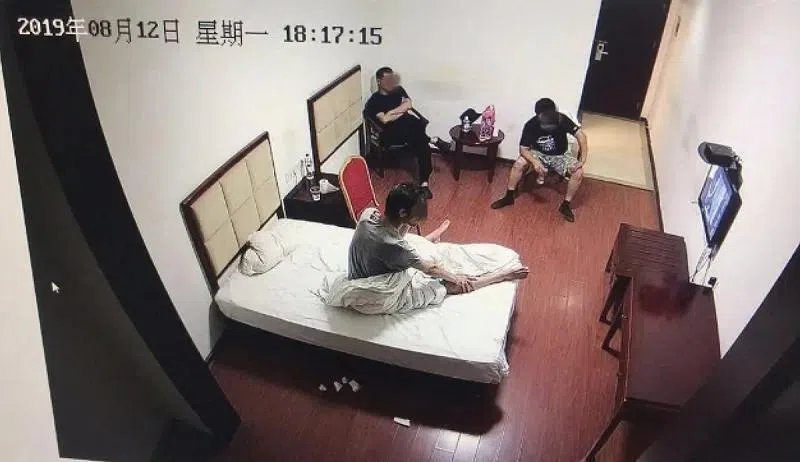
中国针对备受争议的“指定居所监视居住”(简称“指居”)制度发布改良新规,但不少视指居为“恶法”、刑讯逼供代名词的法律界人士担忧,当局试图以纠偏的姿态保住指居制度,而非外界期待的彻底废除。
中国媒体《南方周末》和财新网星期二(11月4日)先后引述检察系统信源报道,中国最高检察院和公安部,在6月30日联合印发了《关于依法规范指定居所监视居住适用和监督的规定》,各地检察与公安系统已进行培训。
指居是中国刑事诉讼法中规定的一种非羁押性强制措施,意在减少审前羁押。但中国最高检官网曾刊文指出,指居在实践中往往异化成变相羁押,存在刑讯逼供风险。

© Mark Schiefelbein/Associated Press
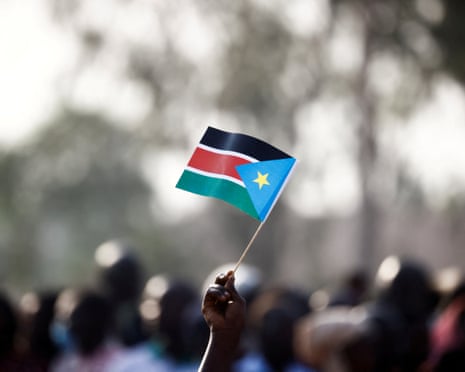
The US is ending temporary deportation protections for South Sudanese nationals, which for more than a decade allowed people from the east African country to stay in the US after escaping conflict.
In a notice published on Wednesday, the US Citizenship and Immigration Services (USCIS) said conditions in South Sudan no longer met the statutory requirements for temporary protected status. The agency also said that South Sudanese nationals with status through the programme have 60 days to leave the US before facing deportation from January.
“Based on the department’s review, the secretary has determined the situation in South Sudan no longer meets the criteria for an ongoing armed conflict that poses a serious threat to the personal safety of returning South Sudanese nationals,” the notice says.
In a statement, USCIS said South Sudanese nationals who use the Customs and Border Protection mobile app to report their departure could receive “a complimentary plane ticket, a $1,000 exit bonus, and potential future opportunities for legal immigration”.
Temporary protected status gives foreign nationals access to work permits and allows them to temporarily live and work legally in the US when their home countries are unsafe to return to.
South Sudan’s designation, which was first authorised in the Barack Obama administration in 2011 due to armed conflict, expired on Monday after many extensions.
The designation had so far been approved for about 232 people from the country.
The termination is the latest effort by the Trump administration to remove the legal status of hundreds of thousands of migrants living in the US. The government has also ended protections for countries including Cameroon, Haiti and Nepal.
The revocations have raised fears for the safety of the immigrants, with critics saying they may return to dangerous conditions.
South Sudan has faced on-and-off conflict since its independence, that has led to huge numbers of killings and mass displacement.
In 2013, the country descended into a civil war that killed more than 400,000 people and displaced nearly half the country’s population. A peace agreement in 2018 ended the fighting but observers say recent developments, including the arrest and prosecution of vice-president Riek Machar, risk plunging the country into conflict again.
Last week, the UN’s Commission on Human Rights in South Sudan warned that a mix of political power struggles, ethnic tensions and local grievances threatened a renewed slide into full-scale fighting.
 lead image
lead image